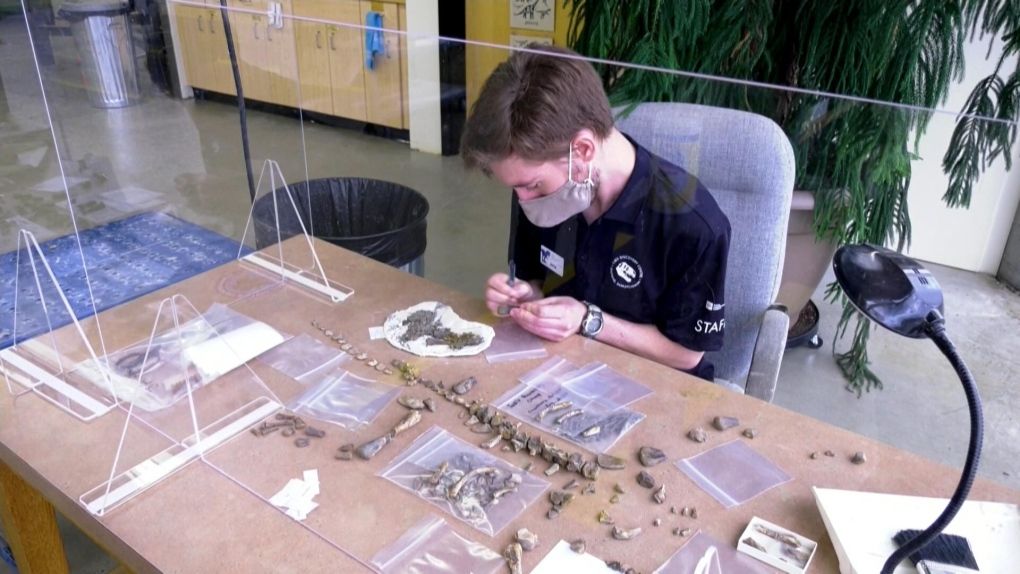Fossils of Prehistoric Centrosaurus Discovered Near Lake Diefenbaker

Research Team from McGill University Unveils Groundbreaking Findings in Saskatchewan, Shedding Light on Ancient Habitat and Diversity of the Region.
A team of researchers from McGill University has made a groundbreaking discovery in Saskatchewan, unearthing fragments of Centrosaurus, a dinosaur that roamed the Earth around 75 million years ago. The fossils were found in a bone bed located near Lake Diefenbaker, a region long believed to be devoid of ancient fossils.
According to Alexandre Demers-Potvin from the department of biology at McGill University, the discovery has provided conclusive proof that Centrosaurus was once present in Saskatchewan, stretching its habitat as far east as the province. This revelation sheds new light on what was happening in ancient Saskatchewan during that time period.
For nearly a century, the Lake Diefenbaker bone bed has been a hotspot for fossil discoveries, with numerous finds contributing to our understanding of the region's prehistoric past. The Royal Saskatchewan Museum (RSM) is thrilled about the recent discovery, as it highlights the province's more diverse and complex history than previously thought.
"Over the last few decades, we're starting to find some very interesting fossils," said Demers-Potvin. "It looks now at least for the Cretaceous period, there are many more to discover in Saskatchewan." The research team plans to return the fossils to the RSM, where they will be exhibited and preserved for future generations to study.
The discovery is a significant milestone in Saskatchewan's paleontological history, offering insights into the region's fossil record and its prehistoric inhabitants. As researchers continue to uncover new finds, we can expect a deeper understanding of our province's complex past and the creatures that once called it home.
